#Heron Camouflage
Explore tagged Tumblr posts
Text

#Wildlife Photography#Birdwatching#Heron Camouflage#Natural Habitat#Wetland Wonders#Bird Enthusiasts#Feathered Beauty#Nature's Camouflage#Wildlife Observations#MissedMileMarkers
51 notes
·
View notes
Text




#nature video#bird video#mallards#anas platyrhynchos#great blue heron#ardea herodias#camouflage#wildlife#wading birds#waterfowl#tule reeds#lake#sepulveda basin wildlife reserve#van nuys#video
0 notes
Text



Inktober 7, Drip
Flutel If amidst dripping rain you chance to hear a light flutelike sound, at first timid and slowly gaining strenght, there might be a Flutel in the vicinity nearby. These rare herons are quite fearful and evasive, hiding amidst the vegetation by raising the green tail and wing feathers arranged in such a way to resemble a tuft of grass. During the rain, when all the other creatures tend to go and hide, they gain a little courage and start singing, communicating long distances with their kin.
The name seems a bit silly in english, but i'm a bit attached to it... And cant think of a reasonable new one with the little time of these last days so it'll make do. Little anxiety bird.
#inktober#inktober 2023#artists on tumblr#fantasy#traditional art#senz-art#magical creature#inking#fudepen#brush inking#monochrome art#concept art#magical beasts#inktober day 7#inktober drip#heron#singing birds#camouflage
1 note
·
View note
Text
Eurasian Bittern
this is a small heron that lives in swamps and lakes. It leads a solitary life. It’s yellowish brown camouflage plumage with black brown and red dots allow it to go unnoticed to the point where it can completely blend into the environment when it is disturbed.

#bird art#artists on tumblr#drawing#sketchbook#hand drawn#birds#birblr#birb art#birbs of tumblr#heron#eurasian bittern#swamp#lakes
9 notes
·
View notes
Text
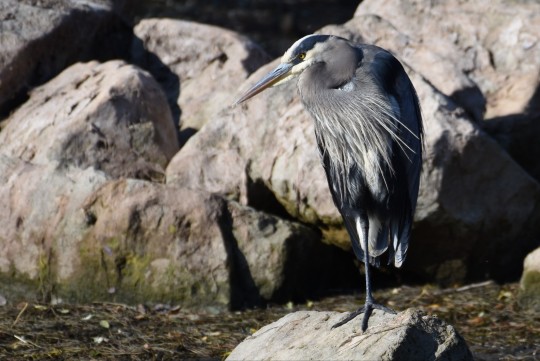
Great blue heron camouflage
52 notes
·
View notes
Text
My path of titans characters yay

Heron! She’s a solo migrator through all seasons. She likes to stick to costal regions with easy access to a pond or a lake, where her color scheme fits better and keeps her camouflaged. I hope to get her into a group when the next spino event takes place

Raven! Cheeky maip who isn’t that interested in courting but is seeking out a coalition with another male. He’s not that social but needs someone to bring his hunting success rate up

Buck! Tiny yuty who isn’t part of a pack as his mother tried to cannibalize him. He escaped with little health to spare and is now just trying to survive. He’s skittish and a bit wary of his own kind after the incident. As he grows he might try to squeeze his way into another pack, yutys are dependent on each other for survival

Timbit! Annoying rhamp whose favorite activity is terrorizing grand plains. Looking to latch his grubby parasite claws on a host but keeps getting rejected and attacked. Tags along on hunts of large carnivores and steals bits of the prize at the end

Bittern! Old duck who has raised a clutch or two. Her mate died in a territorial attack and is now alone. She is refusing to take another partner and spends her days relaxing at her pond
#you love looking at my dinosaurs#Server I play on is Ashfall Realism. Very tiny but hosts a tight knit community and it’s easy for me to play solo#text
4 notes
·
View notes
Text
I decided to change up the Russian miraculous box a little and I like it a lot more than the first one!
Lynx/Taffy - speed/spear/tongue piercing (Taffy, show me speed! Taffy, slow down!)
Power call: Quick feet!
Bear/Grizz - super strength/gauntlets/two rings (Grizz, let's wreck it! Grizz, break time!)
Power call: Toughen up!
Moose/Hiide - grow in size/battering ram/headband (Hiide, crown of antlers! Hiide, uncrowned!)
Power call: Growth!
Badger/Tuusk - creates a sticky trail behind the wearer/honey dipper staff/vampire septum piercing (Tuusk, bare your teeth! Tuusk, stay put!)
Power call: Sticky sweet!
Heron/Whoop - gravity manipulation (picks up objects and people, like in portal kinda)/Chinese scale/long earrings (Whoop, lets fly! Whoop, time to land!)
Power call: Zero gravity!
Snow Leopard/Lepoo - sends back attacks by creating a shield around the wearer/boomerang/dog tag (Lepoo, bring some hail! Lepoo, sunny day!)
Power call: Turning tables!
Magpie/Feefe - thief - touch something to have it teleported to hand (fetch but better) /feather fan that is also individual feather knives/hair pin (Feefe, lets get sneaky! Feefe, cover blown!)
Power call: Yoink!
Deer/Dazzle - turn things into golden statues (paralysis style)/bow and arrow/glasses (Dazzle, lets dance! Dazzle, cut the music!)
Power call: Touch of gold!
Frog/Todd - camouflage coat (harder to see the wearer when used)/bolas/twin bracelets (Todd, croak it up! Todd, quiet hour!)
Power call: Camouflage!
19 notes
·
View notes
Note
Love, love, love the birds worldbuilding in Himring.
I've actually been digging through links looking for birds that occupy Nan Elmoth and the surrounding area - Himlad, northern Estolad, the banks of the Celon.
Any thoughts about the flying critters living around there?
I’ll start with Himlad!
Flora, fauna, geography and environment masterlist
Himlad was a realm in Eastern Beleriand, bordered on the West by the river Aros and on the East, its tributary, Celon. It means ‘cool plain’ in Sindarin and was described simply as a cold region, likely due to its proximity to the March and thus to the Iron Mountains, the cold fronts of which extend throughout the surrounding regions.
I have imagined it as a steppe environment with an ecology similar to Mongolia. We have little information on environment other than the description of cold but some speculation can be done due to the habitat and through looking at similar real habitats, mostly in Northern Europe and temperate parts of Asia as well as parts of North America which Tolkien was inspired by the prairies in (source: The Flora of Middle Earth)
As always I include world building notes at the end so it’s not just a list of species! And as always please consider the list incomplete! There are so so many birds and I often go back to add more. Feel free to request a more specific prompt to focus on or a more specific family of birds
In the plains and steppe: tawny pipit (migratory, traveling west in the winter), David’s snowfinch, brown accentor, Siberian stonechat (also found in shrubs), rosy starling, swan geese, steppe partridge, pallas’s sandgrouse, great bustard, common cuckoo (migratory), cornrail (migratory, avoids the more arid parts), bearded vulture, crested lark, golden eagle, steppe eagle, imperial eagle, grey faced buzzard, ring necked pheasant, hazel grouse, black grouse, blue rock thrush, common quail, horned owls, gray partridge, desert warbler
Roosting in the sparse trees and shrubs: Yellow browed bunting, common rosefinch, fieldfare, stock dove, common nightjar, little owl, pine bunting
River shores: snow bunting (migratory), red necked crane (migratory), greater painted snipe, osprey, coturnix quail, grey heron, hen harrier, white throated dipper, bank swallow
Other: fork-tailed swift (migratory, mainly aerial), white headed duck, house sparrow, brambling (migratory), song thrush (migratory), black billed caper, northern wren
World building notes:
-Hunting with eagles and other birds of prey is more common than in the other Fëanorian realms (though most utilize birds at least sometimes). Golden and steppe eagles are used primarily by Celegorm and his loyal servants; these are huge and beautiful birds whose use is in some ways a boast of the skill of their handlers
-Celegorm’s knowledge of the language of birds is highly utilized for the defensive and offensive projects of Himlad. Though his followers do not for the most part have this gift they are highly skilled in using tracks, traces and conditions to understand the presence of local birds and the implications thereof. They know what to make of the stray tail feathers of a steppe partridge versus the presence of molt. They know the difference between the tracks of
Of course this applies to other creatures besides birds but as this post is about birds…
-Grouse and quail are sometimes kept for meat and eggs though different species of quail then are kept by the Marchwardens of Doriath. Some of the species are brought from Estolad, Ossiriand or Western Beleriand. The birds are housed in large open pens with small nesting boxes. 
-There are also domestic species of chicken, peacock and quail like birds that are kept for similar reasons. Hybrid species, sometimes with native species, occur naturally and through planned breeding projects during the Long Peacd
-The camouflage of steppe creatures including birds is often used in the fashion of Himlad’s soldiers.
-The various sections of archers among the army and scouts are distinguished by varying types of feathers used in their arrows. For example, Swan goose feather is used for the scouts that patrol the borders and rivers, swift feathers are used among the smaller more specialized groups and golden eagle feathers are reserved for the archers who will be first in the lines of offensive movements.
-Game birds are hunted for meat though all parts are used. Bird bones are actually highly utilized by the host of Himlad, in jewelry and headwear as well as whistles and other tools.
As always please feel free to ask more!
33 notes
·
View notes
Text
Group **** *** mental health walk. with maniacs who dont wanna bask in [and photograph] everything beautiful they see [see beauty in all things] but i tried my best. I have some really gorgeous landscapes but the landscape in question feel. Extremely doxxable. Oh well. BIRDS
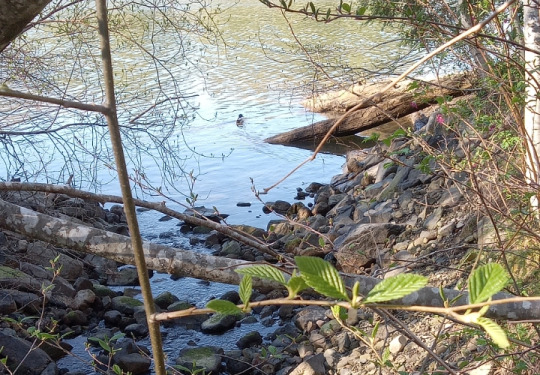
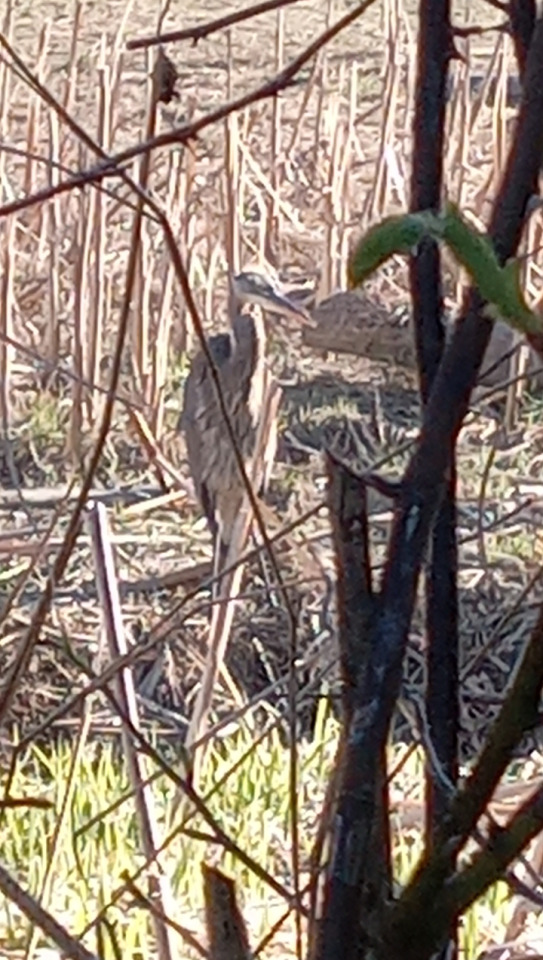
[ID: 1. Rocky creek out to larger body of water. Duck swimming in it [small in frame] 2. A blurry close up of a heron or similar tall bird standing among reeds, pretty well camouflaged. END]
#some shit#yippee?#WINDY. out there.#we picked up some kinda overpriced tacos. tasty. eppy now.#had to take the heron picture to help one person see it
4 notes
·
View notes
Text


What a beautiful capture of a juvenile night heron! This little one seems comfortable amidst the complex, fallen branches by the water. Juvenile night herons, with their brown and white speckled feathers, are known for being slightly more camouflaged than their striking adult counterparts. They are usually a bit shy and often found hiding in dense thickets near water sources, where they hunt for small fish and amphibians.
#bird#birdblr#bird of the day#birds#birds of tumblr#wildlifephotography#nature#naturephotography#missedmilemarkers#NaturePhotography#BirdPhotography#WildlifeWatching#JuvenileNightHeron#HeronLovers#WildBirdsOfInstagram#BirdWatching#WetlandWildlife#BeautifulBirds#MissedMileMarkers
59 notes
·
View notes
Note
Trick or treat!!
i present your trEAT (hope you like bird facts)

this guy is a bittern and he’s a very cool bird.
he’s a type of heron, native to europe and he’s kickass but very rare. in 1997 they were on the brink of extinction with only 11 males left, however thanks to a lot of great work they are doing much better now, with 198 males in 2019.
this guy lives in reedbeds and is very good at camouflage, so pretty difficult to spot. your best shot is during spring when males will let out their call, a massive booming sound that can travel for up to 3 miles. it’s such a cool and unique call, definitely my favourite thing about them.
you can hear their call here!! happy (late) halloween
3 notes
·
View notes
Text
we saw a heron at the park a few weeks ago but like i could BARELY see it. bc of the camouflage. extremely fucked up bc theyre huge but it was like in its element (plants at the edge of the water) and it turned invisible i swear to god
3 notes
·
View notes
Text

I don't see green herons as often as I see great blue herons and great egrets. They just aren't as large as the other herons and egrets, and don't wade out in the river while hunting for food. Even though they have a fairly distinct color pattern, it does provide effective camouflage as they sit very still among vegetation on the river's edge.
This juvenile green heron was perched on the rootball of a downed tree, and was using the "if I don't move, she won't see me" tactic. Fortunately for me, it adjusted its legs, which alerted me to its presence.
#birdwatching#nature photography#wildlife photography#bird photography#shorebirds#little green heron#river birds#bird migration#nikon photography#original photography#photographers on tumblr
5 notes
·
View notes
Text
Good morning. 🌞🌞🌞
11 August 2023
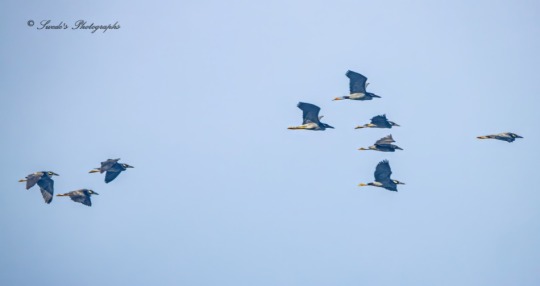
When I was a marine, we wore green cotton fatigues. We would take them to the cleaners and have them starched so that when we put them on, we had to "break starch" by parting the legs and arms so that we could push our legs through. We also had black combat boots that we usually spit shined every day.
A few years later, in the Army, it was mostly the same, but the uniforms were lighter and were supposed to be permeant press, they weren't. In 1980's the camouflage battle dress uniform became the approved work uniform.
After retiring, I still worked on Army posts in Europe and Louisiana. I saw the uniform change three or four times during those years, and they wear ruff brown boots that don't need shinning.
“Those of us who have never been in the military don’t understand what it is like to serve in the military.” - Gina Barreca
The photo is of a flock of yellow-crowned night herons (Nyctanassa violacea) flying over the Caribbean Sea, miles away from land.
#photo#photography#photographer#photographylovers#birds#birdwatching#birds of north america#birdsphotography#birdlovers#birdphotography#birds nature#birdingphotography#yellow crowned night heron#bird#bird watching#bird photography#birding
2 notes
·
View notes
Photo


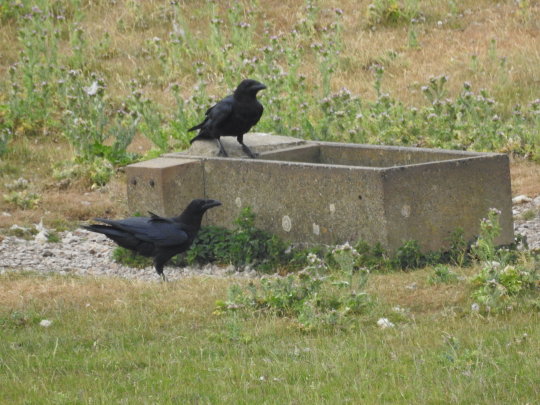
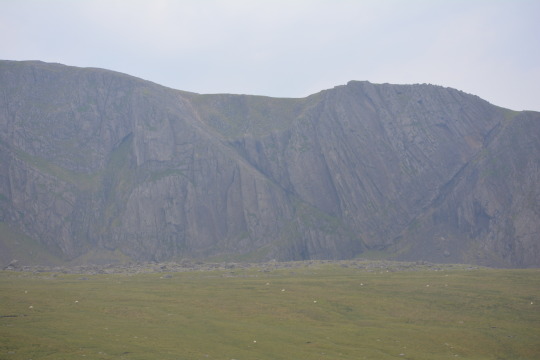
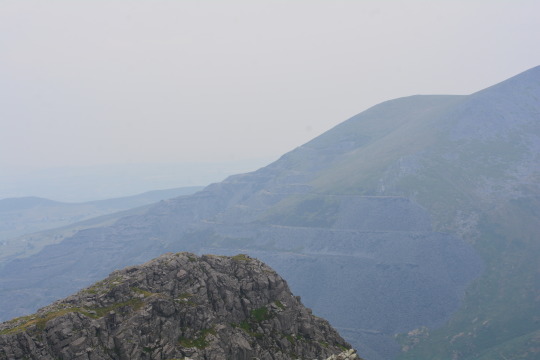
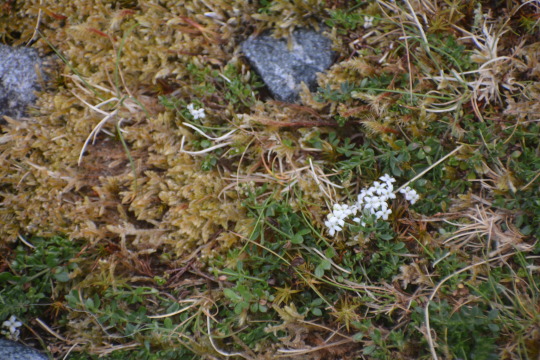
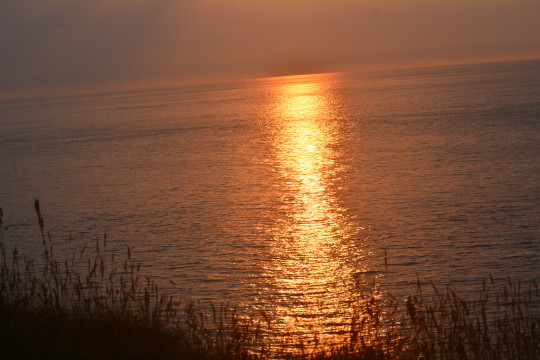
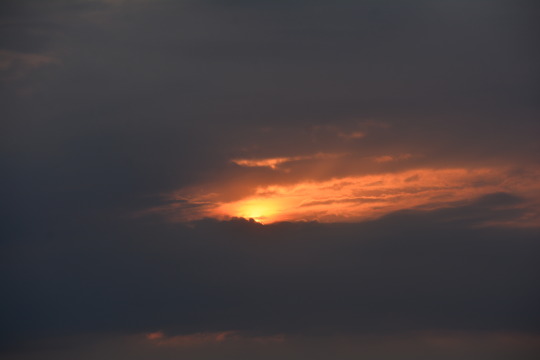

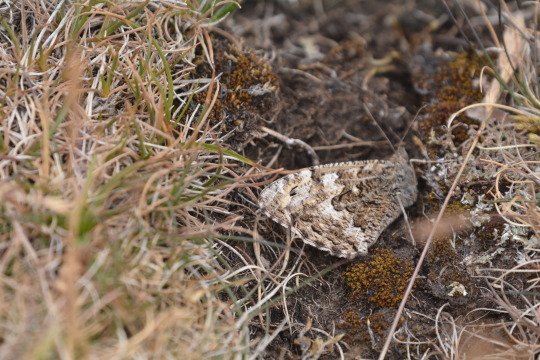
16/06/2023-Great Orme and Llandudno for a trip on the cable cars, Llanberis for a trip up Yr Wyddfa on the Snowdon Mountain railway and Llanbadrig to look at Ynys Badrig aka Middle Mouse
Pictures taken in this set: 1. Viper’s-bugloss at Great Orme in a garden area which was pretty to see. 2. Beautiful panoramic view from the Great Orme. It was so good to enjoy and be immersed in this on the cable cars you can see for miles including back down to Puffin Island where we were the other day. 3. Ravens on the Great Orme. 4 and 5. Views at Yr Wyddfa, wonderful to have this consuming and stunning experience taking in the breathtaking mountainous views again. It was special. 6. Heath bedstraw it was nice to see at Yr Wyddfa. 7 and 8. More sensational views of the sun going down over the water at Llanbadrig, it was so peaceful to be here in the evening late in the holiday a great pretty spot with the church too. 9. Chough at Great Orme, this species that has been one of our birds of the holiday was something of a surprise for us here, it was exceptional to hear their charming calls once more and see a couple. The one in the photo possibly a youngster too. 10. A Common Grayling at the Great Orme that I was astounded to see, my first of the year and this is by far the earliest sighting I’ve ever got of one the first time I’ve seen the species in June in fact. This is a species I don’t even think of until July on the New Forest heaths at home. It was brilliant to watch a few of these camouflage artists flitting through the grass, a euphoric moment to see my 32nd butterfly species of the year. Thanks to me being reminded of their sub-species something I read about before by someone I know on Twitter it seems the early sighting could be explained by them being the Hipparchia semele subspecies which is found only on the Orme as they do emerge sooner. This is pretty cool if so.
Other highlights at the Great Orme were Small Heath, Meadow Brown, Meadow Pipit, Swallow and Goldfinch, with striking Wheatears seen very nicely joyous moments, Skylark, Goldfinch and Speckled Wood seen going up Yr Wyddfa. Also on the brief look at Llanbadrig looking across to Ynys Badrig tonight it was good to see of course Gannet Middle Mouse where they have historically begun nesting which I first heard about in the Iolo’s Anglesey series last year so I was thrilled to see this, Guillemot, Cormorant, Oystercatcher, Swallow, Manx Shearwater, possible Razorbill, Black Guillemot and Chough and also Sandwich Tern. It was soothing to hear the wails of the seabirds on the island, a key and beautiful sound this week. It was great to see Grey Heron on a chip shop stop at the wonderful Betws-y-Coed with Swallow seen going through Eryri again. Newt in a pond and the famous town invading during lockdown Kashmiri Goats were nice to see at the Great Orme and other plant highlights there were scarlet pimpernel, hawksbeard, common rock-rose and water lily. Foxgloves, tormentil and cotton grass in good numbers were good to see up Yr Wyddfa and thrift, sea plantain and white clover were nice to see at Llanbadrig. Lady’s bedstraw and thyme were nice to see at both Great Orme and Llanbadrig.
#chough#common grayling#photography#wales#llandudno#llanberis#great orme#llanbadrig#ynys badrig#middle mouse#yr wyddfa#eryri#goldfinch#wheatear#raven#small heath#outdoors#north wales#europe#uk#earth#happy#sheep#lady's-bedstraw#heath bedstraw#scarlet pimpernel#2023#june#butterfly#butterflies
3 notes
·
View notes
Quote
However, the seemingly weekly or biweekly creation of new dances such as the Breakdown, the Robot, and the Freak camouflaged deep-seated sentiments of alienation. Scott-Heron's recordings responded to the resentment and skepticism the dances moves typically concealed. He cultivated a slow-jam vibe that typifies listening parties-what reggae singer Ziggy Marley later called a conscious party-as an alternative variant of blue funk.
from Groove Theory: The Blues Foundation of Funk by Tony Bolden
#Tony Bolden#Gil Scott Heron#Ziggy Marley#Black performance: a sublime artistry#Black art theory as an excavation of meaning#Black sonic vortex
4 notes
·
View notes